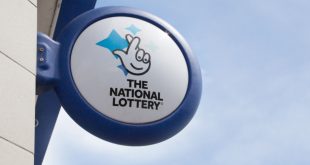The responsible gambling charity GambleAware (formerly the Responsible Gambling Trust) has produced research which suggests that the so-called £50 journey actually saw players increase stakes around the new limit of £50 rather than meet the restrictions imposed for those wanting to bet at the higher £100 stakes limit.
The £50 journey was introduced by the government and the UK Gambling Commission in April 2015. Under the legislation, customers that wished to wager more than £50 per spin had to pay over the counter or sign up to an account which monitored play.
In the initial wake of the introduction of the £50 journey, play at the highest stakes immediately dropped off. However, new research conducted on behalf of GambleAware by Professor David Forrest from the University of Liverpool and Professor Ian McHale from the University of Salford suggests this was replaced by more staking at £50.
Says McHale: “The average session duration and number of plays per session increased following the regulations, and we found no evidence of a change to the increasing trend in the frequency of high loss session.
“These findings suggest that future measures to protect vulnerable play may need to consider all dimensions of the gambling architecture including stake limits, prize sizes and speed of play.”
According to the report, after a period of adaptation, the fall in total stakes for bets over £50 was almost exactly matched by an increase in total stakes from bets just within the new £50 ‘soft cap’.
It added that there was evidence also that to compensate for the lower maximum stake, session times lengthened and the number of plays or spins per session also increased. As the report said, given this it seems unlikely the goal of harm minimisation was achieved.
GambleAware suggested the new staking conditions were ineffective in reducing harm in those particular players.
Still, the report warned against making any assumptions about what would happen were stakes limits to be lowered further. “The disappointing findings about what seems to have been the ineffectiveness of the last change do not necessarily imply that a future reduction would fail to mitigate harm,” the authors state. “A lower cap would affect a new group of players who might respond differently from those who favoured the highest staking levels.”
It did conclude, however, that the focus simply on staking levels might be “optimistic” in hoping to affect problem gambling behaviour and that other measures such as speed of play and mechanism for playing should also be considered.
Association of British Bookmakers chief executive Malcolm George was quick to point out some of the key points for the current debate waging around FOBTs, especially Point 14 of Executive Summary which suggested a lower limit “would make for greater volatility in returns and an increased frequency of very high losses over a session. This could increase harm”.
He said: “The findings of this independent report clearly conclude there is no evidence that cutting the maximum stake would reduce problem gambling. We have always said that the small number of MPs and others who have suggested lower FOBT limits should look at the evidence.
“People need to be aware that some of the measures put forward by the casino and arcade industries would do more harm than good. We continue to work with GambleAware and others to help the very small number of customers who have problems with their gambling.”









